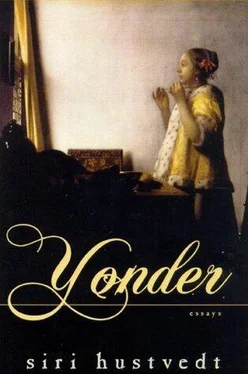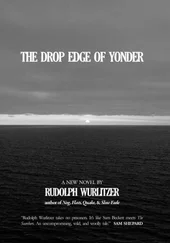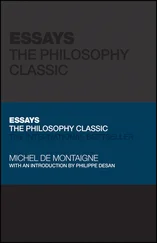I worked at a place called the Youth Emergency Service, and the staring boy used to hang out there. I don’t know where he lived or how he managed. He didn’t go to school. He was sad that day, as he probably was most days, and we talked. I have no recollection of that conversation, but I know that in a fit of compassion, I hugged him. I am convinced that the whole staring problem hinged on this hug, and to this day when I think of it, I am mortified. Acts cannot be retrieved and, sometimes, they last. This is not a simple story. I often wonder if any story is, if you really look at it, but I carry his face around with me and when I think of him and the former me, I feel sorry for both of us.
The other staring man was a student of mine at Queens College. I taught freshman English there and an introductory literature class. My teaching was passionate, occasionally histrionic, but I was a young woman on a mission to educate, and sometimes I did. This student was clearly intelligent, although he had profound and jarring diction problems. His papers were written in a gnarled, convoluted style that was meant to be elevated but was often merely wrong. Eventually, I came to recognize that there had been signs of schizophrenia in the writing, but that wasn’t until later. I had private sessions with all my students. These meetings were required, and when I met with him, I urged simplicity and hiding his thesaurus forever. The trouble began when he was no longer my student. He would barge into my office unannounced and throw unwanted gifts onto my desk — records, perfume, magazines. He, too, had a penchant for inexplicable transformations, for flannel shirts one day and silky feminine tops the next. On a balmy afternoon in late April, he visited me wearing a fur coat. Another time, I looked up to find him standing in my little graduate-assistant cubicle, his fingers busily unbuttoning his shirt. This story rings with comedy now, but I was aghast. In my best schoolteacher voice, I shouted, “Stop!” He looked terribly hurt and began stamping his foot like a three-year-old, whining my first name, as though he couldn’t believe I had thwarted him. After that, he would park himself outside the classroom where I taught and stare at me. If I looked a little to the right, I would see him in my peripheral vision. The staring unnerved me, and after several days of it, I was scared. When I crossed campus, he would follow me — an omnipresent ghost I couldn’t shake. Talking to him did no good. Yelling at him did no good. I went to the campus police. They were indifferent to my alarm. No, more than that, they were contemptuous. I had no recourse. In time, the student gave up, and my ghost disappeared, never to bother me again. The question is, What does this story exemplify? Would it be called sexual harassment now, because of that shirt episode? Is it stalking? What he actually did to me was innocuous. The fear came from the fact that what he did was unpredictable. He did not play by the rules, and once those rules had been broken, I imagined that anything was possible.
Neither of these staring experiences was erotic for me, but they may have been for the two young men who did the staring. Who I was for either of them remains a mystery to me, a blank filled with my own dread. They have lasted inside me as human signs of the mysteries of passion, of emotional disturbance and tumult, and despite the unpleasantness they caused me, I am not without compassion for both of them. I have stared myself. Looking hard is the first sign of eros, and once when I was fourteen, I found myself staring very hard at a house. I had fallen in love with a boy who was fifteen. He cared nothing for me and was involved with a girl who had what I didn’t have: breasts. She fascinated me almost as much as he did, because, after all, she was his beloved, and I studied her carefully for clues to her success. One Saturday in the fall, I walked to his house, stood outside on the sidewalk, and stared at it for a long time. I’m not sure why I did this. Perhaps I hoped he would walk out the door, or maybe I thought I might gain the courage to ring the bell. I remember that the house looked deserted. Probably no one was home. It was a corner house on a beautiful street in Northfield, lined with elms. The elms are all dead now, but I remember the street with trees. That house, which once was his house, is still suffused with the memory of my terrible ache for him, a longing I found almost unbearable and which was never requited. Years later, when I was grown (much taller than he ever grew) and I saw him in a local bar, he remembered my “crush” and said he regretted not acting on it. As silly as it sounds, this confession of his gave me real satisfaction, but the fact is he didn’t want the fourteen-year-old I had been, but the twenty-two-year-old I had become — another person altogether.
Ogling should be legal. Looking is part of love, but what you see when you look is anybody’s guess. Why that skinny ninth-grade boy with glasses sent me into paroxysms of longing, I couldn’t tell you, but he did. Feelings are crude. The ache of love feels remarkably like the ache of grief or guilt. Emotional pain isn’t distinguishable by feeling, only by language. We give a name to the misery, not because we recognize the feeling but because we know its context. Sometimes we feel bad and don’t know why or don’t remember why. Mercifully, love is sometimes equal, and two people, undisturbed by the wrong underwear or the wrong nose, find each other inside this mystery of attraction and are happy. But why?
Contentment in love usually goes unquestioned. Still, I don’t think enduring love is rational any more than momentary flings. I have been married to the same man for fifteen years, and I can’t explain why he still attracts me as an erotic object. He does, but why? Shouldn’t it all be worn out by now? It is not because we are so close or know each other so well. That solidifies our friendship, not our attraction. The attraction remains because there’s something about him that I can’t reach, something strange and estranging. I like seeing him from a distance. I know that. I like to see him in a room full of people when he looks like a stranger, and then to remember that I do know him and that I will go home with him. But why he sometimes strikes me as a magical being, a person unlike others, I can’t tell you. He has many good features, but so do other men that leave me cold as a stone. Have I given him this quality because it is efficient for me, or is it actually in him, some piece of him that I will never conquer and never know? It must be both. It must be between us — an enchanted space that is wholly unreasonable and, at least in part, imaginary. There is still a fence for me to cross and, on the other side of it, a secret.
Love affairs and marriages stand or fall on this secret. Familiarity and the pedestrian realities of everyday life are the enemies of eros. Emma Bovary watches her husband eat and is disgusted. She studies maps of Paris and hopes for something grander, more passionate, unfamiliar. A friend of mine told me about evenings out with her husband, during which they seduce each other all over again, and she can’t wait to get home and jump on his beautiful body; but if on the way into the house he pauses to straighten the lids on the garbage cans, the spell is broken. She told him, and he now resists this urge. These interruptions disturb the stories we tell ourselves, the ready-made narratives that we have made our own. A combination of biology, personal history, and a cultural miasma of ideas creates attraction. The fantasy lover is always hovering above or behind or in front of the real lover, and you need both of them. The problem is that the alliance of these two is unpredictable. Eros, after all, was a mischievous little imp with arrows, a fellow of surprises who delighted in striking those who expected it least. Like his fairy reincarnation, Puck in A Midsummer Night’s Dream, he makes madness of reason. He turns the world upside down. Hermia prefers Lysander to Demetrius for no good reason. Shakespeare’s young men, Demetrius and Lysander, as has often been pointed out, are as alike and interchangeable as two pears. When Theseus points out to Hermia that Demetrius is just as good as Lysander, he isn’t lying. It’s just that Demetrius is not the one she likes. After much confusion and silliness, the lovers are set right by magic. Demetrius is never disenchanted. The flower juice remains in his eyes and he marries Helena under its influence, the point being that when we fall in love, we’ve all got fairy juice in our eyes, and not one of us gives a jot about the sane advice of parents or friends or governments.
Читать дальше












